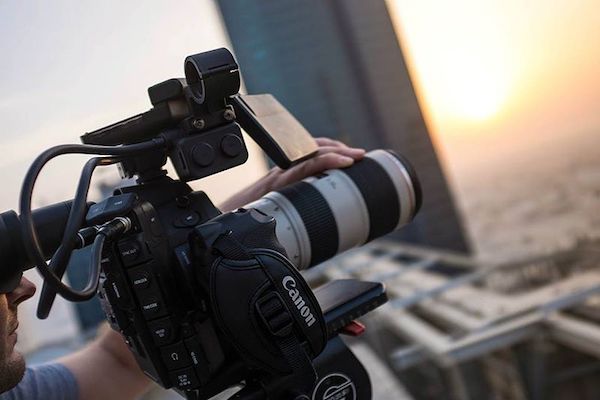
Photography is a visual art form that uses light from the sun or artificial sources to capture images on a light-sensitive surface. It has evolved and undergone numerous changes since its birth. Photographers used cumbersome cameras and expensive materials like glass plates and silver halide salts to create their images in the early days. Today, anyone with a smartphone can take a high-quality photo. And while this increase in accessibility has decreased the overall value of images, it has also opened up new opportunities for those passionate about this art form, like Hunter Hobson.
Despite the challenges posed by the digital age, photography remains a viable and popular profession. In fact, according to the U.S. Bureau of Labor Statistics, the median pay for photographers was $34,000 per year in 2018, and the employment of photographers is expected to grow by 3% from 2018 to 2028. While this isn’t a massive influx of new jobs, it indicates there is still demand for photography services.
So, What Does This Mean For Aspiring Photographers?
First and foremost, there’s no time to start pursuing your passion like the present. If you’re considering taking up photography as a hobby or side hustle, now is an excellent time to do so. Photography is more accessible than ever — thanks to technological advancements — and it’s also more affordable. With digital cameras and editing software readily available at relatively low prices, you don’t need to spend a fortune to get started in this field.
And if you’re already working as a photographer but struggling to make ends meet, don’t give up just yet! There are plenty of ways to market your business and reach new clients; you just need to get creative and think outside the box. Social media platforms like Instagram and Pinterest provide excellent opportunities for promoting your work to a wide audience. Online directories like Yelp and Google Business can help boost your visibility in search results. You can make headway in this competitive industry with a little effort (and maybe some help from an SEO specialist).
Tips for Making a Living as a Photographer
If you’re thinking about becoming a professional photographer or you’re already working in the industry and struggling to make ends meet, here are some tips that might help you make a living:
Find Your Niche.
There are countless amateur photographers, but not all specialize in the same type of photography. Find the area you’re most passionate about and focus your efforts on becoming an expert in that field. Whether it’s wedding photography, fashion photography, landscape photography, or something else, specializing will help you stand out from the competition.
Network.
In any profession, you must network and builds relationships with others in your field. Get involved with professional organizations, attend conferences and workshops, and make an effort to meet other photographers—you never know when one of those contacts might lead to a job opportunity.
Market Yourself.
Even if you’re the best photographer in the world, no one will hire you if they don’t know you exist. Make sure your website is up-to-date and easy to navigate; post samples of your work on social media; and don’t be afraid to promote yourself—in moderation.
Be Flexible.
In today’s economy, many businesses are cutting costs wherever possible, including spending on professional photographers. As a result, many photographers have to be more flexible with their rates and services. If you’re willing to negotiate prices or offer discounts for certain services, you’ll be more likely to land new clients.
Think outside the traditional system.
The traditional model for finding work as a photographer — working with an agency or going through an online database — isn’t working as well as before. Instead, consider working with smaller businesses or individuals who might not have noticed you otherwise. You might also want to explore other revenue streams, such as teaching photography classes or selling photo prints online.
Photography In The Future
It is impossible to know precisely where photography is headed. However, we can make some pretty good guesses based on the current state of the art. For example, Increased artificial intelligence will play a significant role in the future of photography. We are already seeing this trend with the development of automatic editing features and “smart” cameras that can recognize faces and objects. The next logical step is for cameras to be able to think for themselves and make decisions about composition, lighting, and other factors.
We will also likely see more augmented reality features in camera hardware and software. These features will allow photographers to see information about their surroundings and make decisions accordingly. For example, an augmented reality display could show the photographer the sun’s location relative to their current position or the names of nearby landmarks.
Finally, we will likely see a continued increase in the use of drones for photography. Drones offer a unique perspective previously only available to those willing to risk their lives by climbing tall structures or using helicopters. As drones become more affordable and easy to use, we will see more and more photographers using them to capture images from new perspectives.
Final Thoughts
Although it faces stiff competition from newer forms of visual media, photography remains an essential part of our culture — and a viable profession for those with talent and ambition like Hunter Hobson. So if you’ve ever considered picking up a camera or starting your own business, there’s no better time than now. Get started today and see where your passion takes you.
via https://www.AiUpNow.com
October 19, 2022 at 07:43AM by admin, Khareem Sudlow
